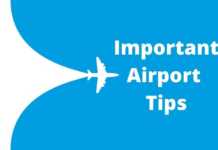In 2012, the TSA intends to expand its PreCheck airport security screening program to 28 more airports, bringing the total number of participating airports to 35. This program allows eligible US citizens who fly often to pass through security checkpoints without removing clothing, laptops or approved liquids from their bags. This policy will make flying easier for a significant number of people, but it doesn’t increase the effectiveness of existing security procedures or lighten the burden of “security theater” on passengers who don’t make the cut.
Airplane passengers who want to participate in the PreCheck program need to apply via the US government’s Global Entry website. The program only works for frequent flyers on Delta Airlines, American Airlines and US citizens who are already part of the US Customs and Border Protection’s Trusted Traveler programs. According to the TSA, it intends to expand the program to include additional airlines. People who don’t fly often or use an approved airline are ineligible.
Enrollees must register for an account on the CBP Global Online Enrollment System and enroll in TSA PreCheck, NEXUS, SENTRI or FLUX. The passenger must provide extensive personal information to allow what is essentially a background check. When booking travel, approved members must provide a PASS ID number associated with their accounts to make a PreCheck reservation.
If approved, a passenger does not have to remove shoes, belt or a light jacket or coat before passing through security. PreCheck passengers can also leave liquids in their bags, but still have to conform to the TSA’s 3-1-1 rule. Laptops may also be kept in their bags, but must still pass through screening. Passengers must use special checkpoints to enter the terminal; not all checkpoints are certified for PreCheck.
The TSA does not reveal the process it uses to determine whether a passenger is qualified for PreCheck, only that it uses “an intelligence-driven risk assessment.” Passengers don’t even know that they are cleared for expedited screening in advance; they must find out via their boarding passes. The TSA still uses random, unpredictable screening measures on all passengers, so PreCheck may not significantly reduce the inconvenience and loss of privacy associated with flying.
Expanding PreCheck essentially creates a special “protected class” of flyers who receive slightly less security screening, but doesn’t improve the process of flying for people outside that class. It also encourages flyers to give personal information, including travel plans, to this government agency in exchange for reduced inconvenience.
PreCheck favors specific airlines, directing consumers toward them if they want to avoid dealing with security annoyance, and leaves travelers who don’t fly as often or who use other airlines stuck in a difficult system that produces far more false positives than it does results.








